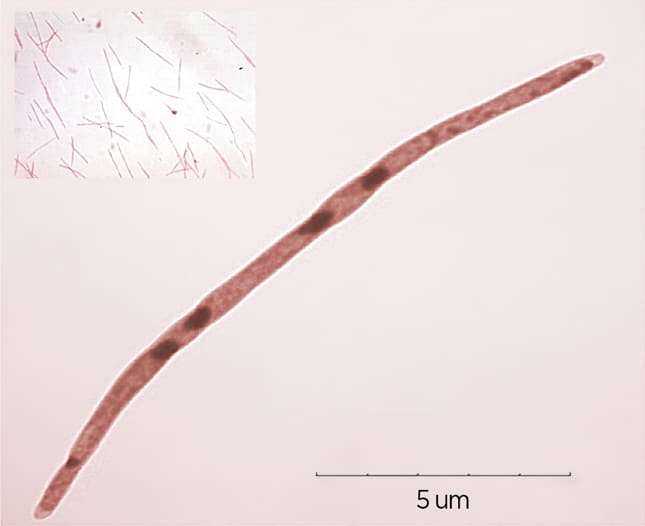Fusobacterium nucleatum is a pathogenic oral bacterium that is well known as a gum disease bug commonly found in dental plaque and periodontal lesions.
Current research shows that F. nucleatum plays a significant role in the development of periodontal disease. It is also associated with invasive infections of the head, neck, chest, lungs, liver and abdomen, and can act as a “bridge” for other late-arrival bacterial organisms to our tooth surfaces and gum tissue. Of note, F. nucleatum has the deceptive ability to deregulate our immune response, as well as secrete specialised proteins called chemokines, which are known to promote interaction between cancer cells.
In the first stage of the Japanese study, researchers used a real-time laboratory analysis technique (QRT PCR) to assess DNA from the cancer tissue of 325 patients. All of these patients underwent surgery to have their oesophageal cancer removed at Kumamoto University Hospital.
The researchers detected and identified the F.nucleatum bacterium DNA in the cancer tissue of 74 patients of the test group, or about 23%. They found that F.nucleatum DNA positivity was significantly associated with the stage (or size) of the tumour, but not with other factors such as age, gender, tobacco use, alcohol use or tumour location.
In the next stage of the study, the researchers made a comparison of the post-surgery survival time of the patients who tested positive for F.nucleatum with those who tested negative. Their findings showed that patients with F.nucleatum present in their cancer tissue had a much shorter survival time as well as more aggressive tumour behaviour (via activation of chemokines).
Further comparative analysis also showed significantly higher levels of F.nucleatum present in cancerous tissue as opposed to normal tissue.
Lead author, Professor Hideo Baba reported, “This study suggested that the oral cavity bacterium F. nucleatum may be involved in the development and progression of esophageal cancer via chemokines”.
Further research is still needed to determine how the F. nucleam bacterium interacts with the development and progression of oesophageal cancer. But given its reputation so far, it is definitely one oral bacterium that we should best avoid through regular brushing, flossing and dental check-ups.
* F.nucleatum has previously been detected by researchers in colon cancer tissue, and the findings show that the bacterium may influence the development of colorectal cancer.
Sources:
“Human Microbiome Fusobacterium Nucleatum in Esophageal Cancer Tissue Is Associated with Prognosis.” Authors: Kensuke Yamamura, Yoshifumi Baba, Shigeki Nakagawa, Kosuke Mima, Keisuke Miyake, Kenichi Nakamura, Hiroshi Sawayama, KoichiKinoshita, Takatsugu Ishimoto, Masaaki Iwatsuki, Yasuo Sakamoto, Yoichi Yamashita, Naoya Yoshida, Masayuki Watanabe and Hideo Baba. Kumamoto University, Japan. Published 15 November 2016 by Clinical Cancer Research.
“Chemokine function in periodontal disease and oral cavity cancer.” Authors: Sahingur SE and Yeudall WA (2015) Front. Immunol. 6:214. doi: 10.3389/fimmu.2015.00214 1 Department of Periodontics, Virginia Commonwealth University, Richmond, VA, USA. Published: 5 May 2015
“Fusobacterium nucleatum pericarditis.” Authors: Truant A.L., Menge, S., Milliorn, K., Lairscey, R., Kelly, M.T. Journal of Clinical Microbiology. Published: February 1983. pp. 349-351.












